A couple of months ago Murray Maisey sent me a clipping from the World regarding the death of Thomas Sharpe. Because Constable Sharpe worked for the CPR, I forwarded the clipping to Graham Walker, who did such an amazing job uncovering the murder of Special Constable Charles Painter last year. Graham, now a constable with the Saanich Police Department and a member of the Saanich Police Historical Society, hit the BC Archives, and this story is the result of his investigation.
By Graham Walker
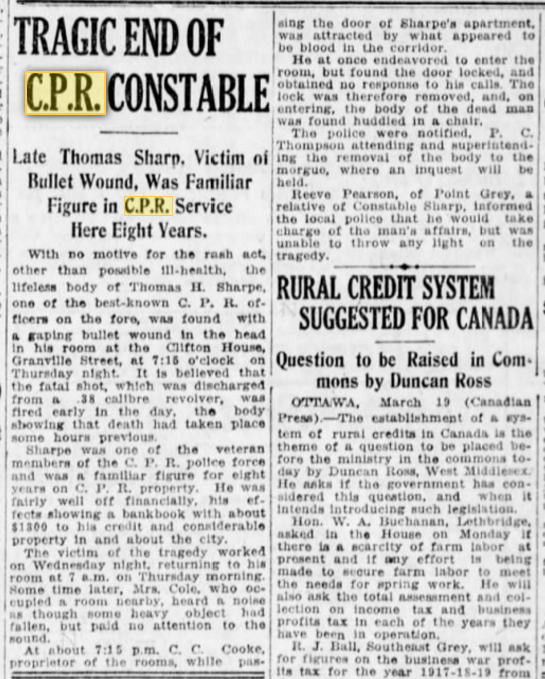
On March 18, 1920, Charles Cook, hotel keeper at the Clifton Rooms on Granville Street, received a call from the Canadian Pacific Railway’s Waterfront station, looking for Thomas Sharpe, a guest at the hotel.
Cook headed upstairs to Room 68 on the fourth floor and knocked and knocked, but there was no answer. Because he worked nights, Cook knew Sharpe was a hard man to wake, so he decided to let him sleep.
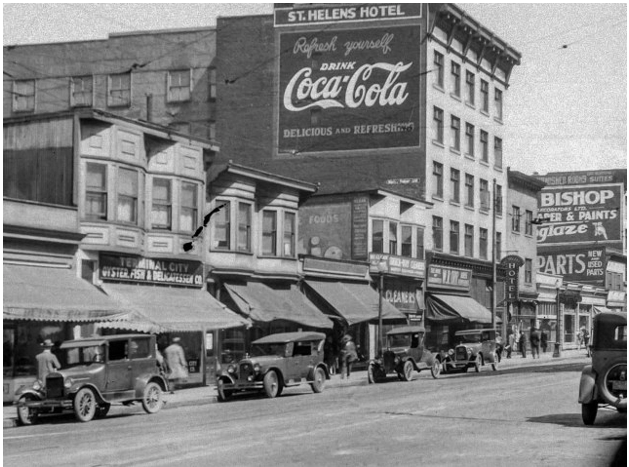
Around 7:00 p.m. Cook went back upstairs and knocked again. When he tried his pass key he found the door had been locked from the inside. Cook went back downstairs to get his tools and saw Mr. Francey, a ship caulker, in the sitting room. The two men removed the bolt and opened the door. They found Constable Sharpe in a chair, a bullet wound to his head. Cook phoned police.
Vancouver Police Constable William Thompson was the first to respond. He saw that Sharpe still had a revolver in hand, his head was lying back on the stove, and there was a large pool of blood on the floor. It appeared to be a suicide, but Thompson had the presence of mind to fully examine the room.
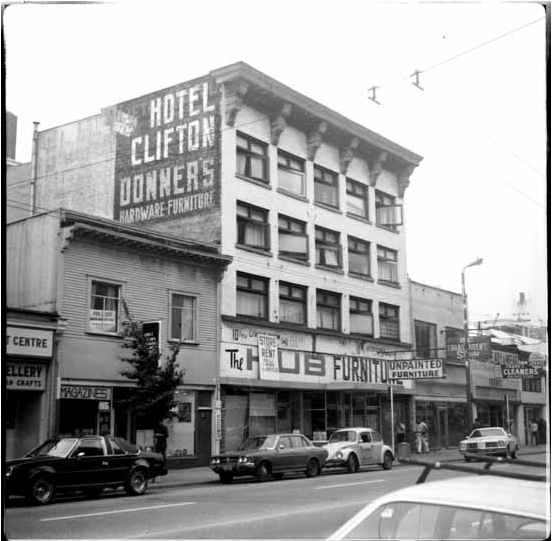
An ammunition box rested on a table in front of Sharpe. One cartridge was missing. Thompson examined the revolver and found one empty shell in the chamber. Except for the body, the room looked in order. The constable noted that the window was open, but the location of the body and the bullet hole led him to believe the shot could not have come from outside, and no one could have left by the window.
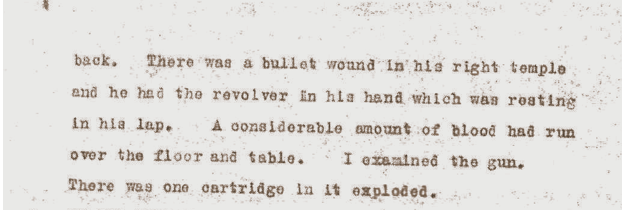
Ms. Cole, the occupant of the room next to Sharpe’s, told Thompson that she heard a noise around 9 a.m. and thought it was a heavy object that had dropped.
Coroner Thomas Jeffs held an inquisition two days later at the City morgue.
Witnesses told him that 49-year-old Sharpe had worked for the CPR for eight years, and lived at the hotel for the past six.
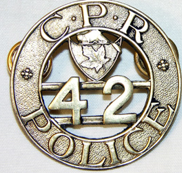 Sharpe had recently transferred to the night shift because he liked the “quiet,” and had worked the 10 p.m. to 6 a.m. shift the night before his death. He arrived home around 7:00 a.m. and changed into regular clothes.
Sharpe had recently transferred to the night shift because he liked the “quiet,” and had worked the 10 p.m. to 6 a.m. shift the night before his death. He arrived home around 7:00 a.m. and changed into regular clothes.
Sergeant Charles Loscombe, a friend and coworker, described Sharpe as an honest and hard-working man, who was also reserved and introverted. Loscombe confirmed that the .38 calibre revolver found at the scene was not a police weapon. Sharpe’s duty revolver, a .32, was still in his locker at the station. Loscombe said that Sharpe was on a strict diet because he suffered from chronic indigestion. The sergeant also suggested that there may have been some financial troubles having to do with Sharpe’s investments in real estate in North Vancouver and Point Grey, as well as his shares in the CPR.
Thomas Pearson, a Reeve in Point Grey testified that he had known Sharpe since they were boys. He said that Sharpe’s father had recently passed away, and Sharpe had talked about taking a leave of absence to help out on the family farm in Quebec.
Pearson believed that the shooting was suicide brought on by temporary insanity. The jury agreed.

Sharpe was buried at Sainte-Julienne, Quebec.
Mental health awareness for emergency services workers has been in the spotlight due to many high-profile suicides by law enforcement officers and rescue workers. It’s likely that Sharpe’s work as a railway constable involved significant stress, duties involved, and still involve, responding to tragedies along the rail line.
For workers exposed to traumatic stress, problems can accumulate over time and end up with very serious consequences. Many agencies have taken great steps in recent years to educate their employees on mental health awareness and have provided instructional sessions for those who wish to be peer counsellors. But despite many improvements, tragedies like these still occur across the country.
Mental health resources:
paramedicnatsmentalhealthjourney.com




1 comment on “The Tragic Death of CPR Constable Thomas Sharpe”
[…] Graham Walker has written a guest post for Eve Lazarus this week, exploring the life and death of CPR Constable Thomas Sharpe. […]